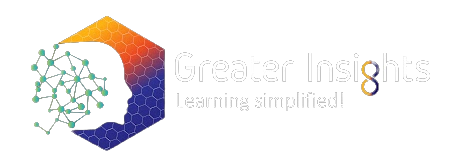DevOps Full Stack
CloudLabs
Projects
Assignment
24x7 Support
Lifetime Access
.
Course Overview
This course is designed to provide a comprehensive understanding of DevOps from beginner to advanced level. The course is divided into five levels, with each level building upon the previous level. The course covers a range of topics including infrastructure as code, continuous integration and delivery, monitoring, and security. The course includes hands-on labs and projects to help participants apply their knowledge to real-world scenarios.
At the end of the training, participants will be able to:
- Understand the principles and practices of DevOps
- Implement infrastructure as code using tools such as Terraform and Ansible
- Implement continuous integration and delivery using tools such as Jenkins and GitLab
- Implement monitoring and logging using tools such as Prometheus and Grafana
- Implement security best practices in DevOps processes
- Use containerization and container orchestration tools such as Docker and Kubernetes
Pre-requisite
Duration
20 days
Course Outline
- What is DevOps?
Principles and practices of DevOps
Benefits of DevOps
DevOps tools and technologies
DevOps culture and collaboration - Hands-on lab: Participants will set up a development environment and install necessary tools such as Git
- and Docker.
- Introduction to infrastructure as code
- Configuration management tools such as Ansible and Chef
Infrastructure provisioning tools such as Terraform and CloudFormation
Infrastructure testing and compliance
Introduction to cloud computing platforms such as AWS and Azure
- Hands-on lab: Participants will use Terraform and Ansible to provision and manage infrastructure.
Mini-project 1: Participants will create an infrastructure as code template for a real-world scenario
provided by the trainer.
- Introduction to continuous integration and delivery
CI/CD tools such as Jenkins and GitLab
Automated testing
Code quality and code review tools
Release management and deployment strategies - Hands-on lab: Participants will set up a CI/CD pipeline using Jenkins and GitLab.
Mini-project 2: Participants will create a continuous integration and delivery pipeline for a real-world
scenario provided by the trainer.
- Introduction to monitoring and logging
Monitoring tools such as Prometheus and Nagios
Log aggregation and analysis tools such as ELK stack and Graylog
Infrastructure and application performance monitoring
Alerting and notification strategies - Hands-on lab: Participants will use Prometheus and Grafana for monitoring and logging.
- Introduction to DevSecOps
Security considerations in infrastructure as code and CI/CD pipelines - Container security
Vulnerability management and scanning
Compliance and auditing - Hands-on lab: Participants will implement security best practices in a DevOps pipeline.
Project 3: Participants will work on a project that incorporates all the concepts and tools covered in the
course. The project will be a real-world scenario provided by the trainer.
Reviews
"The corporate training provided by Greater Insights was truly exceptional. The trainers were highly knowledgeable and engaging, making the sessions both informative and enjoyable. I gained valuable insights and practical skills that I immediately applied in my work. I highly recommend Greater Insights for their professionalism and expertise."
Rahul NiraniaSamsung 
"As a participant of the corporate training program organized by Greater Insights, I was thoroughly impressed with the level of customization they offered. They took the time to understand our specific needs and tailored the training accordingly. The trainers were fantastic, and the interactive sessions fostered an environment of active learning. I am grateful for the valuable knowledge and skills I acquired."
Bhawna TiwariSamsung
"I cannot express enough gratitude to Greater Insights for the outstanding corporate training they provided. The trainers were not only experts in their respective fields but also incredible communicators. They created a dynamic and collaborative learning environment, which allowed us to learn from one another. The training surpassed my expectations, and I would eagerly participate in any future programs they offer."
Ashutosh SinghSamsung 
"Attending the corporate training sessions organized by Greater Insights was a game-changer for me. The trainers were not only experienced professionals but also inspiring mentors. They equipped me with practical tools and strategies that have significantly enhanced my productivity and efficiency at work. I wholeheartedly recommend Greater Insights to anyone looking to excel in their professional endeavors."
Somashekar MuniyappaInfogain 
"The corporate training program offered by Greater Insights was an enlightening experience. The trainers had a deep understanding of the subject matter and were able to break down complex concepts into easily digestible information. The interactive activities and case studies made the training engaging and relevant to our day-to-day work challenges. This training has undoubtedly boosted my confidence and competence."
Amresh DiwanInfogain 
"I had the privilege of participating in a corporate training program organized by Greater Insights, and I must say it was a transformative experience. The trainers' expertise and passion for their subjects were evident in every session. The training materials provided were comprehensive and well-structured, enabling us to grasp the content effectively. I am grateful for the valuable skills I acquired, which have greatly contributed to my professional growth."
Namratha BabuTorry Harris 
"The corporate training sessions conducted by Greater Insights were simply outstanding. The trainers went above and beyond to ensure that we understood the concepts thoroughly. The interactive nature of the sessions encouraged active participation and enhanced our learning experience. I am truly grateful for the practical strategies and techniques I learned, which have had a positive impact on my work performance."
Rahul BhashyamTorry Harris 
"Participating in the corporate training program organized by Greater Insights was an enlightening experience. The trainers were not only knowledgeable but also skilled at delivering the content in an engaging manner. The training materials were well-designed, and the real-life examples provided valuable insights. I am confident that the knowledge and skills I gained will significantly contribute to my professional growth."
Deepti JainTorry Harris 
"I can confidently say that the corporate training provided by Greater Insights was top-notch. The trainers were highly experienced and had a knack for simplifying complex concepts. The training sessions were interactive and encouraged open discussions, which fostered a collaborative learning environment. The practical skills I acquired during the training have proven to be invaluable in my day-to-day work."
HARSHAL TRIVEDIL&T TS 
"Greater Insights exceeded my expectations with their corporate training program. The trainers were not only experts in their fields but also exceptional communicators. They effortlessly connected with the participants and ensured everyone's active involvement. The training content was comprehensive and provided a solid foundation for professional growth. I am grateful for the opportunity to learn from such seasoned professionals."
Namrata PillayL&T TS
"The corporate training facilitated by Greater Insights was exceptional in every aspect. The trainers were engaging and created a positive and inclusive learning environment. The training materials were well-structured and easy to follow, making the learning process enjoyable. The practical exercises and case studies allowed me to apply the knowledge immediately, resulting in improved job performance. I highly recommend Greater Insights for their commitment to excellence."
Sandhya M SanuHoneywell
"I recently attended a corporate training program organized by Greater Insights, and I am incredibly impressed. The trainers were not only knowledgeable but also highly skilled at delivering the content in a relatable manner. The training sessions were interactive and encouraged open dialogue, which made the learning experience engaging and dynamic. The practical skills I gained have already made a significant impact on my professional growth."
Neha SahayHoneywell
"I had the privilege of participating in a corporate training program conducted by Greater Insights, and it was truly transformative. The trainers were passionate and dedicated professionals who took the time to address our individual needs. The training sessions were interactive and encouraged active participation, allowing us to learn from one another's experiences. I am grateful for the knowledge and skills I acquired, which have undoubtedly propelled my career forward."
Abishek KalliparambilAllianz 
"The corporate training program offered by Greater Insights was a remarkable experience. The trainers had a wealth of knowledge and were adept at imparting it effectively. The training materials were comprehensive and provided valuable resources for further exploration. The interactive activities and practical exercises helped me internalize the concepts and apply them in real-world scenarios. This training has been instrumental in my professional development."
Kishor KumarITC Infotech 
"I cannot thank Greater Insights enough for the incredible corporate training they provided. The trainers were not only subject matter experts but also skilled at creating a positive and inclusive learning environment. The training sessions were well-structured, and the trainers ensured that we understood the content thoroughly. I am grateful for the valuable insights and skills I gained, which have already made a noticeable difference in my professional life."
Anitha PrashanthIndegene 
